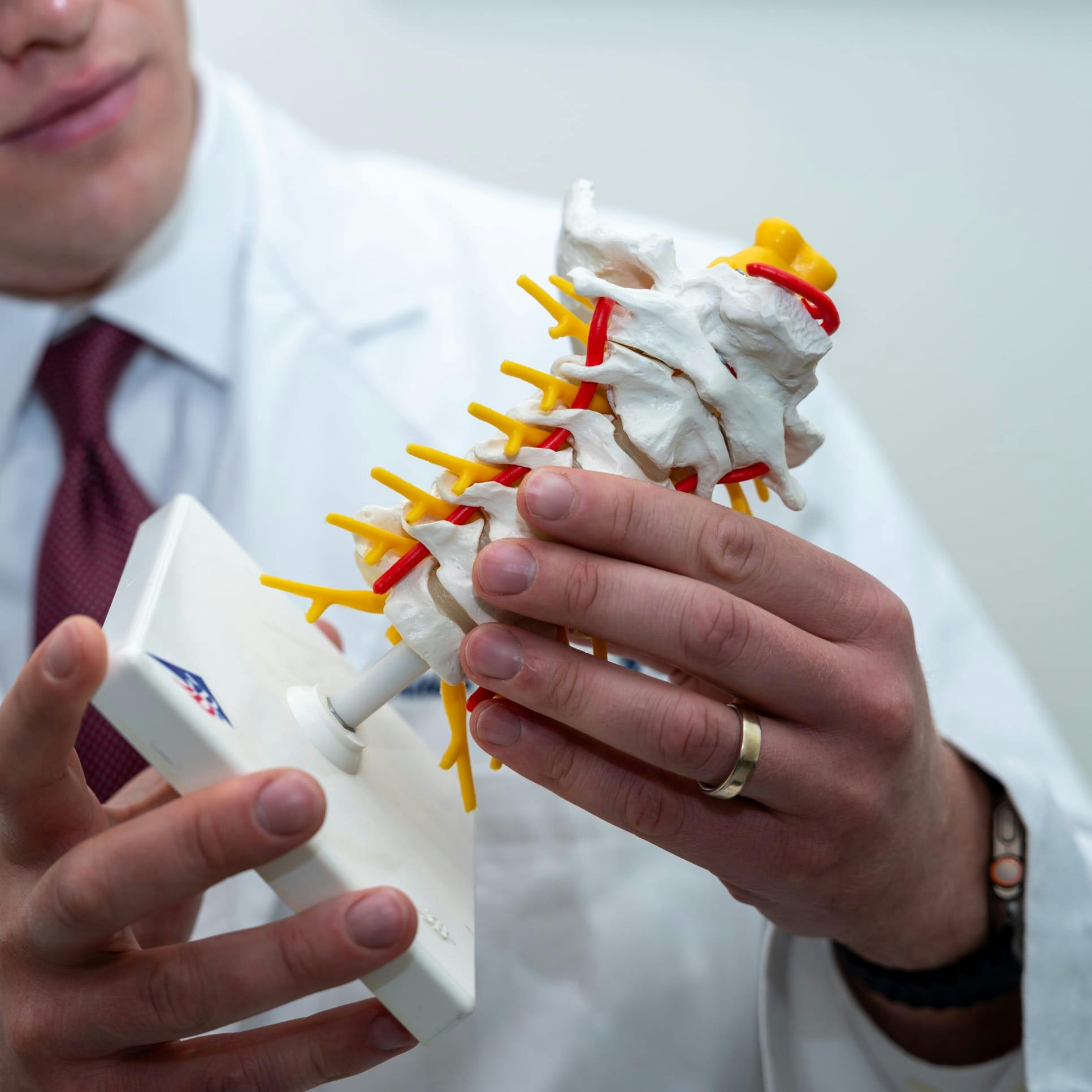The intervertebral disc serves as the cushion between the individual vertebrae. The disc plays an important role in absorbing biomechanical forces the spine is constantly exposed to, whether from normal day-to-day activity, lifting heavy objects, or major trauma like a car accident. Over time, the disc may degenerate, losing its ability to function properly. The disc may thin and lose height, bulge into the spinal canal, or herniate, compressing important nerves.
Table of Contents

Why Choose Virginia Neurosurgeons for Degenerative Disc Disease Care?
At Virginia Neurosurgeons, our board-certified neurosurgeons have extensive training in the diagnosis and surgical management of spinal conditions. What sets Virginia Neurosurgeons apart from other spinal surgeons is our comprehensive training as neurosurgeons. We approach each case by integrating the patient’s symptoms, imaging findings and diagnostics, and detailed neurologic assessment to diagnose the patient and formulate a personalized treatment plan. We pride ourselves on ethical and honest practices, serving as trusted advocates and partners for our patients’ medical care. Our commitment to open communication ensures that patients in Northern Virginia fully understand their conditions and treatment options, even if they are not surgical candidates. Our surgical interventions aim to provide clinically meaningful benefits, including pain reduction and preservation and restoration of neurological function, improving the quality of life for our patients.
DDD FAQs
Can Degenerative Disc Disease be reversed?
Is surgery always required for Degenerative Disc Disease?
How does Degenerative Disc Disease affect mobility?
Can Degenerative Disc Disease be reversed?
Degenerative Disc Disease cannot be fully reversed as it involves the natural aging and wear of spinal discs. However, symptoms can be managed, and in some cases, surgical options like disc replacement can provide relief and improve function.
Is surgery always required for Degenerative Disc Disease?
No, surgery is not always necessary for Degenerative Disc Disease. Many patients find relief with conservative treatments such as physical therapy, lifestyle changes, or pain management techniques. Surgery is typically only considered for severe cases that do not respond to non-surgical options.
How does Degenerative Disc Disease affect mobility?
Degenerative Disc Disease can lead to pain and stiffness that may limit mobility, especially in the back and neck. As discs lose their cushioning, the spine becomes less flexible, which can restrict movement and cause discomfort when bending or twisting.



